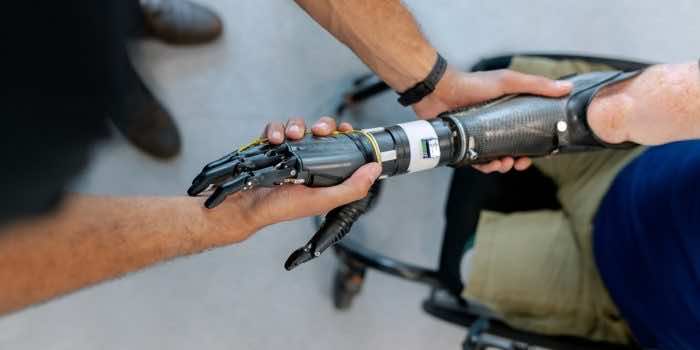A team of researchers at the University of Minnesota (UMN) claim to have developed a technology that would allow patients to control robotic body parts using their thoughts. By employing artificial intelligence and machine learning, the researchers at UMN have developed a portable neuroprosthetic hand. The robotic hand has a nerve implant linked to the peripheral nerve in a patient’s arm.
UMN neuroscientist Edward Keefer said, “We are well along the way toward allowing upper limb amputees at least, and other people in the future, to have totally natural and intuitive control of their prosthetic devices.”
The current prosthetic body parts detect shoulder, chest, or muscle movement. They have sensors to recognize signals in specific regions of the human body. Adapting to such muscle-driven limb movement is not easy for patients, and many such devices are not viable for physically weak individuals.
The amputees have to go through a lot of training to adjust to such devices. The new technology starts working immediately, is less invasive, requires no training, no muscle activation, and no complex setup.
Researcher and one of the authors of the study, Jules Anh Tuan Nguyen, said, “With other commercial prosthetic systems when amputees want to move a finger, they don’t actually think about moving a finger. They’re trying to activate the muscles in their arm since that’s what the system reads. Because of that, these systems require a lot of learning and practice. For our technology, because we interpret the nerve signal directly, it knows the patient’s intention. If they want to move a finger, all they have to do is think about moving that finger.”
What sets this apart is its ability to understand nerve signals.

The machine learning-driven robotic arm setup currently requires a wired connection between skin and an external AI interface. However, the researchers hope that the implant could be linked remotely to any computer in the future.
One of the leading developers of the neural chip technology and study author Zhi Yang believes, “this technology was designed for amputees for sure, but if you talk about its true potential, this could be applicable to all of us.”
The study highlighting the neuroprosthetic hand research is published in the Journal of Neural Engineering.


